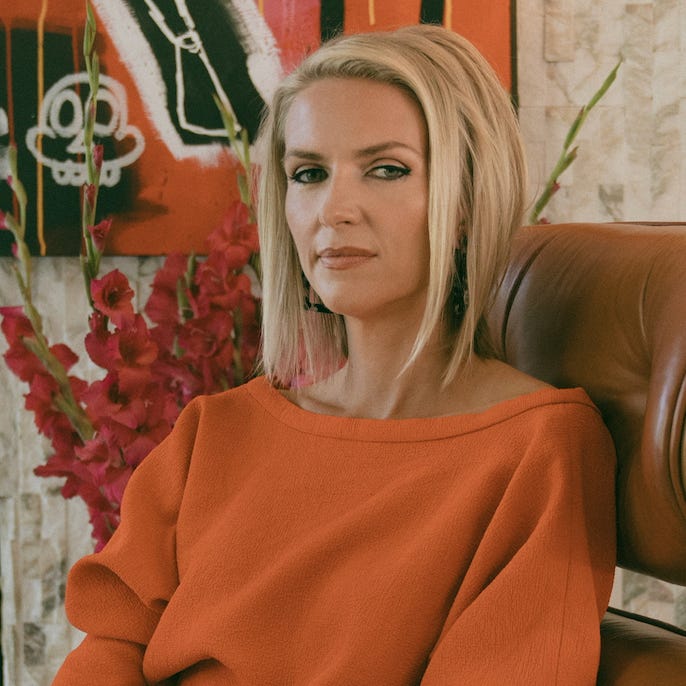On Friday, I sat down with an unusual guest. A man who helped write Project 2025, until he turned against it.
Richard Hanania wasn’t just a Trump supporter. He helped author the conservative blueprint — particularly the parts related to diversity, equity and inclusion. As my readers know, I started in the earliest days of the Obama campaign in Iowa, then worked for President Obama in the White House.
On paper, Richard and I should be political adversaries. Our Substack Live, which we hosted on Friday, should have been full of disagreement.
Instead, we found a surprising amount of common ground. And had some common questions. Like, how can we move beyond zero-sum politics?
Here are three things I learned from our conversation:
1. We Are Both Worried About Trump Administration Appointees
I found unexpected (and alarming) common ground when Richard and I talked about the Trump administration’s appointees, and their competence for the responsibility ahead. Both of us are worried about what we are seeing. And we’re particularly concerned that what’s unfolding is doing lasting institutional damage.
Richard highlighted two Trump appointees that most Democrats would also agree are problematic: Health and Human Services Secretary Robert F. Kennedy Jr. and FBI Director Kash Patel.
Kennedy’s approach could harm medical research for years, Richard said. "There are potentially cures to diseases that we will never see," he warned, citing the administration's cancellation of mRNA vaccine research — technology that could prevent future pandemics and potentially treat cancer.
Kash Patel’s appointment has angered many Democrats. Richard said he is also troubled by Patel’s approach. He said he fears they are pulling agents off of terrorism investigations to focus on immigration enforcement and review documents from the Jeffrey Epstein investigation.
The institutional corruption frustrated him. "It used to be that the Attorney General or the Head of the FBI would not even be seen to be talking to the President about a case,” he lamented. “Trump now just says, prosecute this person, let this person go."
Richard seemed equally frustrated that Republicans aren't pushing back, yet.
The day we spoke news broke about the FBI raid on John Bolton’s home — the home of a Republican and Trump's former national security advisor who has since become a fierce critic — and though details were still sparse, Richard worries in general about targeting political foes.
We’ll see how it unfolds, but we found a lot of common ground here.
2. We Disagree on Tariffs — And That's Okay
Growing up in Galesburg, Illinois, I watched the Maytag plant close and saw how manufacturing job losses devastated my community. These were middle-class jobs that supported entire families. So when I pressed Richard, a fellow Illinois native, about tariffs and bringing manufacturing back to places like my hometown, I expected common ground.
Instead, we found fundamental disagreement.
"The entirety of human history has been people moving," Richard argued. "Sometimes something makes economic sense in one era. It doesn't make sense in another era."
His solution is to remove housing restrictions to help people move to where opportunities exist.
I pushed back. Why abandon beautiful, viable communities like Galesburg? Why support Chinese labor with "absolutely no regulations for human rights or for child labor" instead of American goods and workers?
Richard sees tariffs as economically inefficient and believes markets should determine where jobs go. I believe the government has a role in maintaining domestic manufacturing capability and supporting communities that built America's economic foundation, even as I question the scale and speed of Trump’s actions.
This crystallized something important. Even people capable of substantive conversation will reach genuinely different conclusions. The goal shouldn't be artificial consensus. It should be productive disagreement.
3. Zero-Sum Thinking Corrupts Everything
The most important insight I took from our conversation was Richard’s, on his own ideological evolution. By his own accounting, his views have evolved over time and he has even denounced abhorrent, extremist views he previously published under a pseudonym.
When I asked about his biggest mistake in past thinking, he was clear: "the zero-sum nature of it."
"When you think in zero-sum terms, it makes you very partisan, and it makes you unable to think clearly or to create the kind of environment where we can just manage to live together," he explained.
I agree. Today’s politics seems very zero-sum. Don’t get me wrong. We both expressed our opinions in our conversation, and had strong ones.
On guns, I argued for assault weapons restrictions while he focused on handgun violence statistics. On crime, we debated balancing security and freedom. On business, we debated government’s role in regulation. On education, we could agree on merit pay for teachers but didn’t come to consensus on school choice.
Zero-sum thinking would demand we pick sides and demonize the other perspective. Instead, we found ourselves wrestling with trade-offs and complexities.
Breaking Free From Zero-Sum Thinking
By the end, despite our disagreements, we had an even more unexpected agreement: California's potential to model better governance.
"Maybe we need a California identity," Richard suggested (both of us now live in California). "Focusing on California politics... maybe we could show the rest of the country the way forward."
I would like to think so. If we can genuinely debate our future without demonizing each other, we would have a more constructive conversation.
I'm also not saying it's going to be easy. Just 24 hours after my enlightening and refreshingly multi-faceted debate on Substack Live, I appeared on Newsmax (as I said, I genuinely believe in speaking with those who have different opinions).
It was a very different kind of conversation. And afterwards I got this message from viewer John Ennis on Facebook: "You people are so damned evil, and if you put your hand on a bible it would burn up. we know to be a good demonrat [sic] one must be a good liar." When I responded that he didn't know me, he wrote back: "YOU ALSO MARXIST."
That’s fairly zero-sum.
At least for some, it seems they're disinterested in hearing anything other than "all one party bad, one party good." I guess that's what makes the peacock show between Governor Gavin Newsom and President Donald Trump so popular, and zero-sum thinking so easy.
But my conversation with Richard proved we still have the ability to evolve and to change our minds. He is proof of that. I’m proof of that. And frankly, it’s something that’s all too rare in today's politics.










